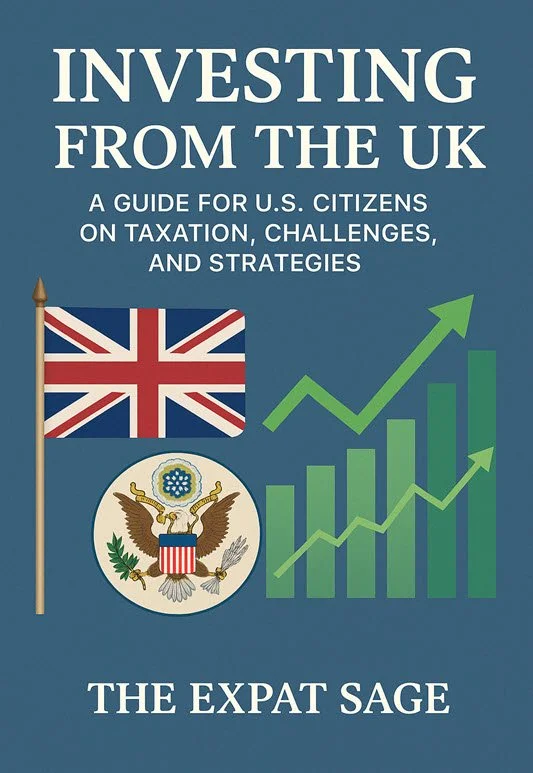Most Recommended Readings for American Citizens Moving to or Living in the United Kingdom
Relocating from the United States to the United Kingdom: Pre-Planning Advice
Moving from the US to the UK requires careful planning in several key areas. The provided information highlights the importance of securing the appropriate visa, explaining different types and application procedures, and stresses the need to research requirements on the official GOV.UK website. Financial planning is essential, covering US and UK tax obligations, the US-UK tax treaty, and advice on opening a UK bank account, while also emphasizing cost of living differences. Guidance on finding housing, understanding the healthcare system (mainly the NHS), and regulations for driving on a US license are also included. Read more…
US and UK Estate and Gift Tax Considerations for a US Citizen living in the UK with US Assets
A U.S. citizen living in the United Kingdom who holds assets in the U.S. risks their estate and gifts being taxed in both countries. This dual liability results from the different tax laws and rules governing estate and gift transfers in the U.S. and inheritance tax in the UK. Navigating these issues requires a solid understanding of each country's tax laws, particularly in light of the new UK law that took effect on April 6, 2025, which replaced the concept of domicile with that of long-term residence. Read more...
U.S. Retirement Savings Plans: 401(k), IRA, and Tax Considerations for US and UK Expats
This article covers different retirement savings options available in the U.S., including employer-sponsored 401(k) and 403(b) plans, as well as individual retirement accounts (IRAs) such as Traditional, Roth, SIMPLE, and SEP. It details each plan’s main features, including contribution limits, tax benefits, and withdrawal rules. Special emphasis is placed on Roth options, noting their potential advantages for U.S. citizens working in the UK, especially considering foreign tax credit implications. Read more…
US-UK Social Security Totalization Agreement: Benefits and Taxation
The U.S.-U.K. Social Security Totalization Agreement aims to prevent double taxation and provide benefit coverage for workers with careers spanning both countries. It removes double social security tax obligations for employees and self-employed persons, so they typically pay into only one system. The agreement allows combining work credits from both nations to meet eligibility criteria for social security benefits in either country. Nonetheless, the U.S. benefit amount is solely based on U.S. earnings. U.S. Social Security payments to UK residents are taxed only in the UK, and the agreement does not cover Medicare benefits, which require separate eligibility. Read more…
A critical investing strategy for an American living in the UK
Investing as a U.S. expat in the U.K. requires a strategic approach to navigate different tax rules and maximize returns. The article highlights avoiding Passive Foreign Investment Companies (PFICs) due to catastrophic tax consequences, instead pointing out the benefits of investing in pooled funds registered in the U.S. and recognized as reporting funds by the U.K. government for easier tax reporting and potential capital gains advantages. Read more…
Designing a Robust Investment Portfolio for US-UK Expats
Managing investments for US citizens living in the UK, and vice versa, involves unique challenges due to dual taxation and different regulations. To handle this, expats need carefully designed portfolios that focus on tax efficiency and currency risk management. A major point for US expats is avoiding Passive Foreign Investment Companies (PFICs) to make US tax filings simpler. On the other hand, UK tax efficiency often requires investments with UK "reporting fund" status to benefit from lower capital gains tax rates. Additionally, effective strategies must be in place to hedge against currency fluctuations. Read more…
US Citizen UK Tax Guide: Filing, Deadlines, and Penalties
U.S. citizens working in the UK have specific tax responsibilities to both the IRS and HMRC, which may include filing obligations in both countries. Penalties are imposed for late filings and payments of U.S. and UK income taxes, with different structures and amounts.
U.S. expats should also be aware of FBAR and Form 8938 requirements for foreign financial assets, as non-compliance can lead to severe penalties depending on whether non-willfulness or willfulness is involved. Read more…
Navigating UK savings accounts: ISAs, workplace pensions, and SIPPs for US taxpayers
This article examines the complexities of UK savings and pension options for US taxpayers. It discusses Individual Savings Accounts (ISAs), noting that although they are tax-free in the UK, their gains are taxable in the US, and some investments may lead to additional US tax burdens. The article then reviews Workplace Pensions, highlighting employer contributions but warning about possible effects on IRA deductions and the complex reporting obligations for trust-based plans. Lastly, it covers Self-Invested Personal Pensions (SIPPs), emphasizing their investment flexibility and the need for careful US tax reporting. As an alternative, maximizing US-based retirement accounts like Roth IRAs and 401(k)s can be simpler, and seeking professional advice is crucial for managing these cross-border financial issues. Read more…

